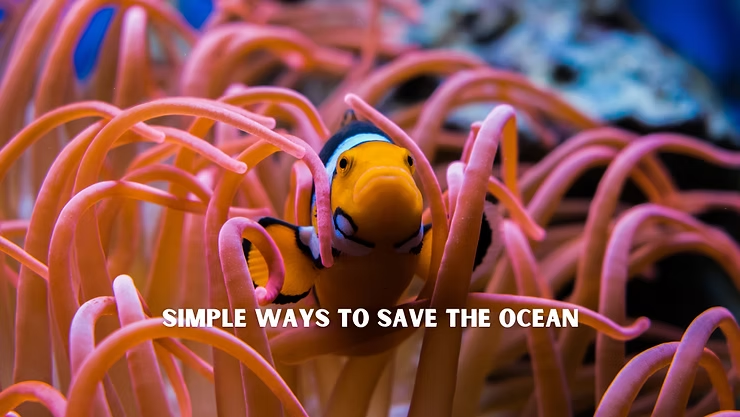Overview
Why Saving the Ocean is Important
The ocean is more than a beautiful expanse of water—it is home to diverse ecosystems and marine life. It regulates the Earth’s climate by absorbing carbon dioxide and producing oxygen, making it crucial for planetary balance. Protecting the ocean also safeguards biodiversity and ensures resources for future generations. Small steps, such as reducing plastic pollution and supporting sustainable practices, can make a meaningful difference in preserving this vital resource.
The Current State of the Ocean
Our oceans face urgent threats from human activity:
- Plastic pollution: Millions of tons of plastic enter the ocean yearly, harming wildlife and entering the food chain.
- Overfishing: Unsustainable practices deplete fish populations and destabilize ecosystems.
- Habitat destruction: Coral reefs, mangroves, and coastal habitats are disappearing due to pollution and development.
These issues require immediate action to protect marine ecosystems and restore balance.
How Individual Actions Can Make a Difference
Individual choices may seem small, but together they create powerful change. Some simple ways include:
- Reduce plastic waste: Use reusable bags, straws, and bottles.
- Conserve water: Avoid waste and value every drop.
- Choose sustainable seafood: Support responsible fishing and avoid overfished species.
- Join beach cleanups: Help remove waste from shorelines and raise awareness.
Every action counts and contributes to a healthier ocean.
Reducing Plastic Pollution
Say No to Single-Use Plastics
Reject single-use plastics like bags, straws, and bottles. Choose reusable alternatives such as cloth bags, metal straws, and refillable bottles to prevent waste from reaching the ocean.
Recycle and Reuse
Recycle bottles, containers, and packaging instead of discarding them. Reuse items whenever possible by carrying reusable cups and bags, reducing pollution and supporting ocean health.
Support Plastic-Free Initiatives
Back businesses and organizations committed to reducing plastic use. Promoting sustainable alternatives helps inspire others to adopt eco-friendly habits and fosters collective impact.
Protecting Marine Life
Choose Sustainable Seafood
Look for seafood certified by the Marine Stewardship Council (MSC) or sourced sustainably. Avoid destructive fishing methods like bottom trawling, and opt for local catches to reduce carbon footprints.
Avoid Harmful Fishing Practices
Encourage sustainable fishing techniques such as pole and line methods or fish traps. Choosing ethical practices preserves marine biodiversity and balances ecosystems.
Support Marine Protected Areas
Advocate for and volunteer in Marine Protected Areas (MPAs) that safeguard habitats and endangered species. MPAs are crucial for conserving marine ecosystems.
Preserving Coastal Ecosystems
Plant Mangroves and Seagrasses
Mangroves and seagrasses provide habitat, prevent erosion, and act as climate buffers. Support or join restoration projects to strengthen coastal resilience.
Reduce Coastal Development
Promote sustainable coastal planning that minimizes habitat destruction. Encourage eco-friendly materials and preserve natural shorelines to protect marine biodiversity.
Promote Beach Cleanups
Participating in beach cleanups removes debris, prevents pollution, and spreads awareness. Data collected during these events also helps guide future conservation strategies.
Conclusion
Preserving coastal ecosystems and protecting marine life are essential for maintaining ocean health. From reducing plastic to supporting conservation initiatives, small actions collectively build a powerful movement. At Save Our Blue Ocean, we are committed to raising awareness and inspiring change. Visit our website to learn more and support our mission. Together, we can create a cleaner, healthier ocean for generations to come.

